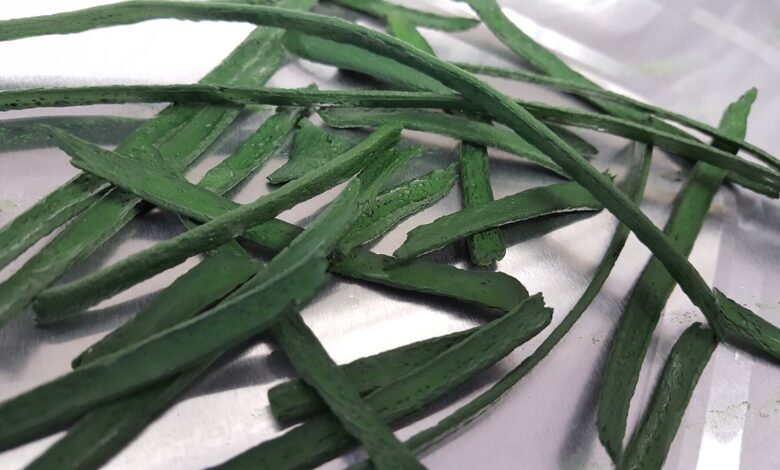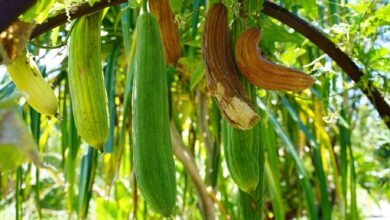Spirulina: The Superfood of the Future

Introduction
In a world continually looking for reasonable and nutritious food sources, spirulina stands apart as an encouraging sign and wellbeing. This blue green growth, experimentally known as Arthrospira platensis, has been causing disturbances in the wellbeing and health local area for its exceptional wholesome profile and ecological advantages. This article digs into what this is, its medical advantages, how it’s developed, and its job in reasonable farming, finishing up with a couple of regularly gotten clarifications on some things.
What is Spirulina?
Spirulina is a kind of cyanobacteria, frequently alluded to as blue green growth, that flourishes in both new and saltwater. It is one of the most seasoned life structures on The planet and has been consumed for a really long time inferable from its high supplement content. It is perceived for its extraordinary blue-green tone, which is because of the presence of a shade called phycocyanin.
Origins and History
Spirulina has a long history, tracing all the way back to old civilizations. The Aztecs and different Mesoamericans consumed it from Lake Texcoco in Mexico. In Africa, it has been gathered from Lake Chad and other soluble lakes in the locale for quite a long time.
Nutritional Profile
This is commended for its thick nourishing substance. It is a rich wellspring of:
- Proteins: Including around 60-70% of its dry weight, spirulina is a brilliant protein source, containing all fundamental amino acids.
- Nutrients: It’s loaded with nutrients A, C, E, and B nutrients, including B12.
- Minerals: Spirulina is plentiful in minerals like iron, magnesium, potassium, and calcium.
- Cell reinforcements: Phycocyanin, the shade that gives spirulina its extraordinary variety, is a strong cell reinforcement.
- Omega-3 and Omega-6 unsaturated fats: These are fundamental fats significant for heart wellbeing.
Health Benefits
The ordinary utilization of spirulina can have a few medical advantages, including:
- Supporting the Insusceptible Framework: Its high supplement content reinforces the invulnerable framework.
- Detoxifying Properties: Spirulina can tie with weighty metals in the body, supporting detoxification.
- Weight The board: Being low in calories however high in supplements, it very well may be a gainful enhancement for weight the executives.
- Diminishing Aggravation: The cell reinforcements in this can assist with decreasing oxidative pressure and irritation.
Cultivation and Sustainability
Spirulina development is generally simple and economical. It develops in water with high pH levels and can be reaped throughout the entire year. This green growth requires fundamentally less land and water than customary yields, making it a harmless ecosystem food source. It additionally helps in carbon dioxide retention, contributing decidedly to the battle against environmental change.
Spirulina in Culinary Uses
This is adaptable in cooking:
- Flavour: It has an unmistakable exquisite taste, frequently depicted as umami.
- Colourant: Its energetic variety can normally upgrade the visual allure of food varieties.
- Recipes: It very well may be utilised in baking, smoothies, energy bars, and, surprisingly, in flavorful dishes.
Ethical and Social Impact
Spirulina development can have positive social effects:
- Battling Hunger: Its high supplement content makes it a significant food in locales experiencing unhealthiness.
- Monetary Open doors: Spirulina cultivation can give maintainable livelihoods in provincial and ruined regions.
Role in Sustainable Agriculture
Spirulina’s capacity to fill in conditions where different yields can’t makes it a fantastic possibility for supportable agribusiness. Furthermore, its development doesn’t need the utilization of pesticides or herbicides, decreasing ecological tainting.
FAQs
1. How can I incorporate spirulina into my diet?
Spirulina can be added to smoothies, mixed greens, or taken as an enhancement in tablet or powder structure.
2. Are there any side effects of consuming spirulina?
Spirulina is by and large safe for the vast majority. Be that as it may, it can cause unfavorably susceptible responses in some, and those with specific ailments ought to counsel a medical care supplier before utilization.
3. Is spirulina suitable for vegetarians and vegans?
Indeed, spirulina is a plant-based wellspring of protein and supplements, making it reasonable for veggie lovers and vegetarians.
4. How does spirulina support environmental sustainability?
Spirulina requires less land and water for development contrasted with conventional yields and helps in carbon dioxide retention, settling on it as a maintainable food decision.
Conclusion
It is something other than a wellbeing pattern; it’s a feasible superfood with the possibility to address dietary lacks and natural difficulties. With its great supplement profile and eco-accommodating development rehearses, it is ready to be a vital participant coming down the line for food.




